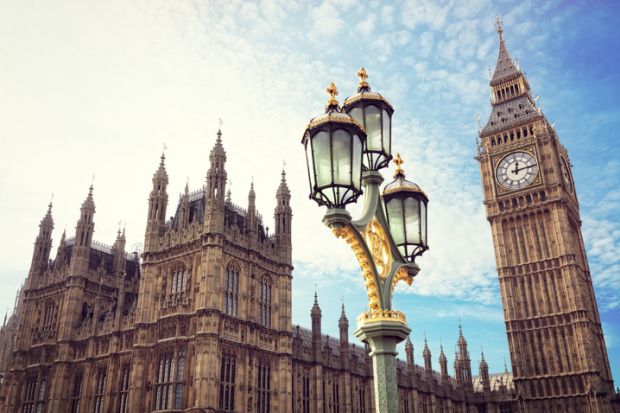Attacks on “rip-off” degrees by the Westminster government are part of rhetoric targeting “New Conservative” voters rather than enacting genuine policy change, according to academics.
With the next general election at most 18 months away, and his party lagging behind in the polls, prime minister Rishi Sunak revealed a series of reforms for the English sector, including number controls on courses failing to deliver “good outcomes”.
The plans, which form part of the government’s response to the Augar review, have been expectedly met with outrage by sector leaders – although this might be part of the government’s electoral strategy, according to Will Jennings, associate dean of research and enterprise at the University of Southampton.
Professor Jennings said that having a degree has increasingly become a big predictor of voting behaviour, with the Conservative vote becoming less dominated by professionals and graduates post-Brexit.
“This push against universities and wokeness is in line with this realignment of British politics around what political scientists call the cultural dimension,” he said.
“It’s a policy that speaks to that mindset of the changing nature of the Conservatives.”
Professor Jennings said there are two parts to the announcement – a series of technical debates around the quality of degree courses, along with “broader rhetoric” which is more consistent with what the “New Conservative” voter looks like.
“It’s sort of classic spectacle politics,” he said. “A policy that’s more about the sound and the fury and the noise that it generates than about actual, substantive change.”
Mr Sunak also cited estimates from the Institute for Fiscal Studies that one in five graduates would be better off financially if they had not gone to university.
Analysis of Ucas data by Times Higher Education reveals that 17 of the 20 seats in England with the lowest proportion of university qualifications are currently represented by Tory MPs.
This includes some of the notable Conservative gains from Labour’s “red wall” in the 2019 general election, such as Ashfield and Bolsover.
When the figures are aggregated, just 37.6 per cent of people in Conservative-held constituencies went to university – the second lowest of any party in the country.
Stuart Wilks-Heeg, professor of politics at the University of Liverpool, said there is overlap in these areas with age, with Conservative voters tending to be older, and that graduates tend to be concentrated where universities are.
Nevertheless, he said this suggests that the proposals appear to be targeted at the party’s electoral base, rather than winning over young voters.
“It's far more about how it lands, emotionally, with groups of voters the Conservatives desperately need to retain to avoid electoral oblivion, than it is about having the right mix of post-18 options for our young people and for our economy,” Professor Wilks-Heeg said.
“If the Conservatives were actually trying to compete for the votes of those under 40, I don't think they’d be doing this.”
Justin Fisher, professor of political science at Brunel University London, said the strategy was “a bit desperate as a rallying cry” but might also appeal to Labour voters who have not been to university either.
With any real changes unlikely to take place before any election, the floated proposals amount to a “free hit” for the Conservatives which also might make some in the sector nervous, he said.
“The headline ‘rip-off degrees’ might play well in the papers for a few days but it’s not a long-term strategy and the financial impact of it – particularly if the Office for Students is in charge – is unlikely to be substantial.”
The proposals also included boosts to apprenticeship provision as alternatives to “poor-quality” university courses, but this was questioned by a former Tory universities minister.
Writing on Conservative Home, Lord Willetts said: “This leads us to the biggest danger of all – that the Conservative Party thinks it can fight a cultural war on the side of apprenticeships which are good against universities which are bad.”
With continued cuts to the real value of tuition fees, Lord Willetts said the government must ensure that as well as being tough on quality, it is “fair on funding”.
Register to continue
Why register?
- Registration is free and only takes a moment
- Once registered, you can read 3 articles a month
- Sign up for our newsletter
Subscribe
Or subscribe for unlimited access to:
- Unlimited access to news, views, insights & reviews
- Digital editions
- Digital access to THE’s university and college rankings analysis
Already registered or a current subscriber? Login








